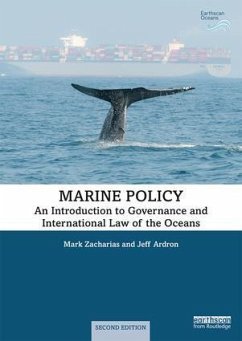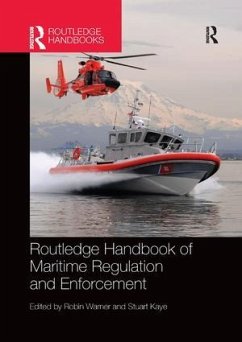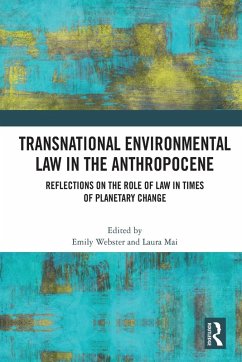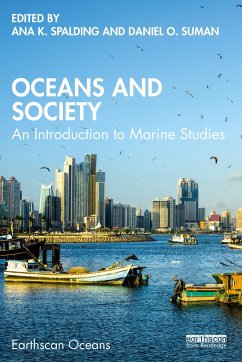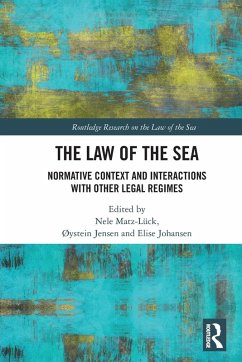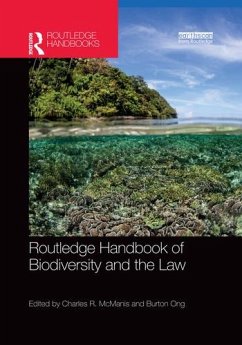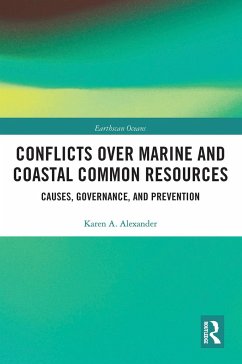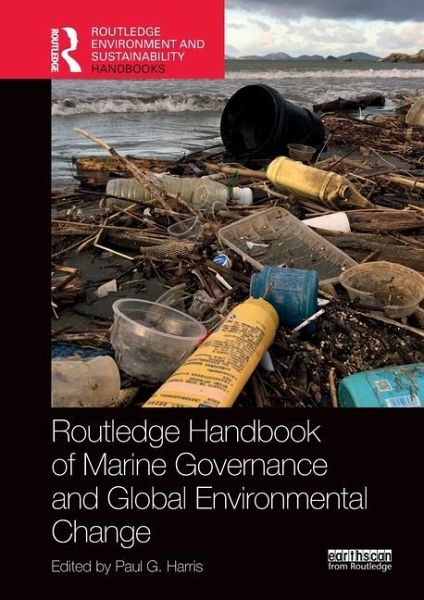
Routledge Handbook of Marine Governance and Global Environmental Change

PAYBACK Punkte
24 °P sammeln!
This comprehensive handbook provides a detailed and unique overview of current thinking about marine governance in the context of global environmental change.Many of the most profound impacts of global environmental change, and climate change in particular, will occur in the oceans . It is vital that we consider the role of marine governance in adapting to and mitigating these impacts. This comprehensive handbook provides a thorough review of current thinking about marine environmental governance, including law and policy, in the context of global environmental change. Initial chapters describ...
This comprehensive handbook provides a detailed and unique overview of current thinking about marine governance in the context of global environmental change.
Many of the most profound impacts of global environmental change, and climate change in particular, will occur in the oceans . It is vital that we consider the role of marine governance in adapting to and mitigating these impacts. This comprehensive handbook provides a thorough review of current thinking about marine environmental governance, including law and policy, in the context of global environmental change. Initial chapters describe international law, regimes, and leadership in marine environmental governance, in the process considering how existing regimes for climate change and the oceans should and can be coordinated. This is followed by an exploration of the role of non-state actors, including scientists, nongovernmental organisations, and corporations. The next section includes a collection of chapters highlighting governance schemes in a variety of marine environments and regions, including coastlines, islands, coral reefs, the open ocean, and regional seas. Subsequent chapters examine emerging issues in marine governance, including plastic pollution, maritime transport, sustainable development, environmental justice, and human rights.
Providing a definitive overview, the Routledge Handbook of Marine Governance and Global Environmental Change is suitable for advanced students in marine and environmental governance, environmental law and policy, and climate change, as well as practitioners, activists, stakeholders , and others concerned about the world's oceans and seas.
Many of the most profound impacts of global environmental change, and climate change in particular, will occur in the oceans . It is vital that we consider the role of marine governance in adapting to and mitigating these impacts. This comprehensive handbook provides a thorough review of current thinking about marine environmental governance, including law and policy, in the context of global environmental change. Initial chapters describe international law, regimes, and leadership in marine environmental governance, in the process considering how existing regimes for climate change and the oceans should and can be coordinated. This is followed by an exploration of the role of non-state actors, including scientists, nongovernmental organisations, and corporations. The next section includes a collection of chapters highlighting governance schemes in a variety of marine environments and regions, including coastlines, islands, coral reefs, the open ocean, and regional seas. Subsequent chapters examine emerging issues in marine governance, including plastic pollution, maritime transport, sustainable development, environmental justice, and human rights.
Providing a definitive overview, the Routledge Handbook of Marine Governance and Global Environmental Change is suitable for advanced students in marine and environmental governance, environmental law and policy, and climate change, as well as practitioners, activists, stakeholders , and others concerned about the world's oceans and seas.






